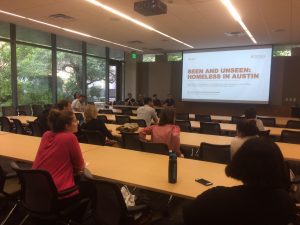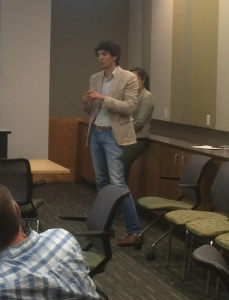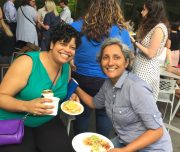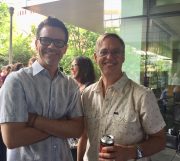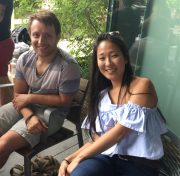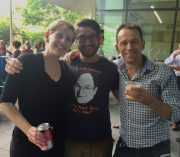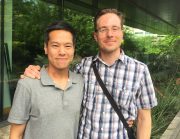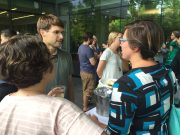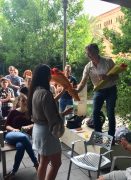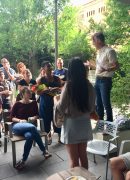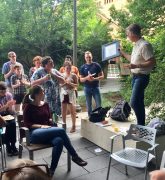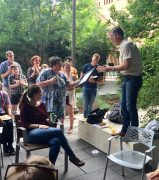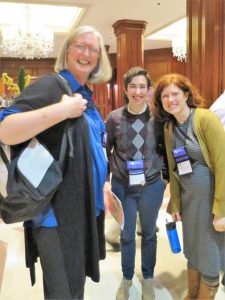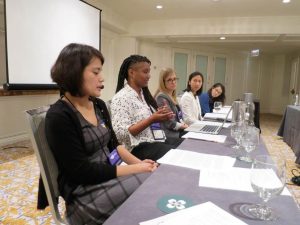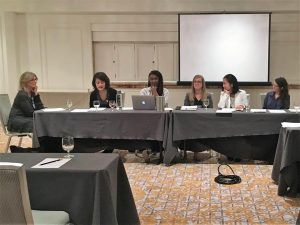To add to an already incredible year of funding acceptances for the department, four UT Austin sociology graduate students have received dissertation awards from the National Science Foundation (NSF). Below is some information about their research, as well as their advice for future applicants.
Katie Kaufman Rogers

Dissertation: “Breaking the Grass Ceiling: Gender, Race, and Class in the U.S. Legal Cannabis Industry”
Advisor: Christine Williams
Year in the program: 4
This project investigates how the emerging multibillion-dollar U.S. legal cannabis industry is stratified by race and gender. Employing the techniques of ethnographic assemblage (Collins 2017), this multi-method study uses content analysis, in-depth interviews, and field research in dispensaries to explore stratification in the emerging industry. This research will have theoretical implications for studies of gender, race, drug economies, and labor inequality, and contribute to policy debates around these issues.
What is some advice you would give students who are applying to NSF in the future?
My two pieces of advice are to get started early, so you have ample opportunity to revise the proposal, and to begin by reading successful proposals from past years, if you can. The NSF wants a particular style and framing and it helps to see examples.
Samantha Simon

Dissertation: “The Police Force: Gender, Race, and Use of Force Training in Police Academies”
Advisor: Christine Williams
Year in the program: 5
What is some advice you would give students who are applying to NSF in the future?
Ilya Slavinski
Dissertation: “The Racialized and Gendered Governance of the Poor in Low Level Misdemeanor Courts”
Advisor: Becky Pettit
Year in the program: 4
There are about ten million misdemeanor cases every year in the United States, almost five times the amount of felony cases. Focusing on misdemeanor courts gives insight as to how the criminal justice system regulates and manages millions of people. This view goes against the dominant narrative that punishment has abandoned its productive functions and simply locks people away and warehouses them. Misdemeanor courtroom interactions suggest that courts regulate those that walk through its doors. Meanwhile, stringent court requirements and norms paradoxically make the fulfillment of court-mandated requirements more difficult sometimes even impossible. How do we reconcile such contradictory demands? Drawing on ethnographic methods, including participant observation of 15 misdemeanor courtrooms around Texas and interviews with misdemeanor court defendants, prosecutors, defense attorneys and judges, this project explores the ways in which misdemeanor courts actors and practices manage and regulate marginalized populations and how these populations react and resist to this regulation.
What is some advice you would give students who are applying to NSF in the future?
Read examples of winning submissions, don’t start from scratch! Use the resources in the department and the PRC [Population Research Center] that help with the process. Have colleagues and faculty read and give feedback before you submit.
Haley Stritzel

Dissertation: “Interagency Collaboration, Child Welfare Involvement, and its Consequences for Children and Families”
Advisors: Rob Crosnoe and Shannon Cavanagh
Year in the program: 4
What is some advice you would give students who are applying to NSF in the future?
___________________________________________________________________________
Applications for for the Doctoral Dissertation Research Improvement Awards for sociology are due in October and are awarded based on four criteria:
(1) the theoretical grounding of the research
(2) the ability for the research to be empirically observed or validated
(3) the appropriateness of the research design to the questions asked
(4) the ability for the research to advance understanding of social processes, structures, and methods
Here’s to hoping for an equally successful round next year!

